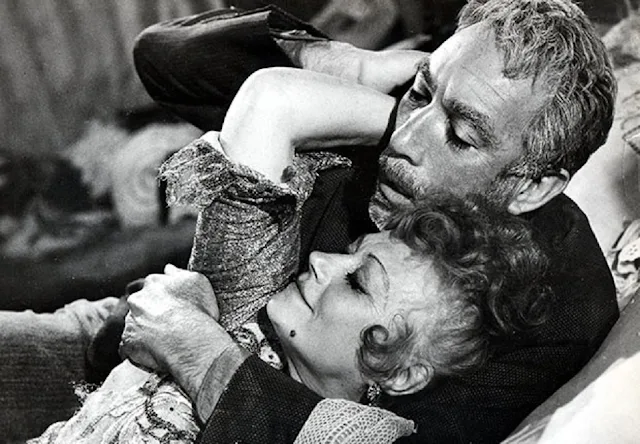 |
| Anthony Quinn and Yaphet Kotto in Across 110th Street |
Cast: Anthony Quinn, Yaphet Kotto, Anthony Franciosa, Paul Benjamin, Ed Bernard, Richard Ward, Antonio Fargas, Nora Donaldson, Gilbert Lewis, Marlene Warfield, Nat Polen, Tim O'Connor, Gloria Hendry, Burt Young. Screenplay: Luther Davis, based on a novel by Wally Ferris. Cinematography: Jack Priestley. Art direction: Perry Watkins. Film editing: Byron "Buzz" Brandt, Carl Pingitore. Music: J.J. Johnson.
Hard, unforgiving, and extremely violent, Across 110th Street sometimes feels like director Barry Shear tried to turn it up to 11. Even the reliably volatile Anthony Quinn sometimes feels like he's holding back in comparison with the hyped-up performances of Anthony Franciosa as a mob boss and Paul Benjamin an ex-con who tries to rip off the mob. The film exploits the hair-trigger racial tensions of New York City in the '70s by pairing Quinn as an aging police captain forced -- for "political reasons"-- to work with a young Black lieutenant (Yaphet Kotto). Almost every character in the movie is unlikable, although the movie manages to elicit some sympathy for the three men whose attempt to steal the haul from the numbers racket ends in a shootout in which both mobsters and cops are killed. Caught between the police and the mob in their attempt to get away with the loot, the robbers meet gruesome ends. Critics were hard on the film when it was released, but it has gained some stature with time as an unvarnished portrait of a dark era in the city's history.




